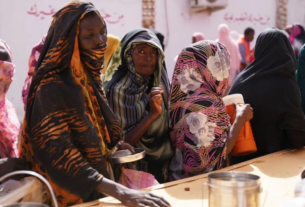Millions of domestic workers in India continue to face exploitation, violence, and poor working conditions. Weak labor laws and lack of enforcement leave them vulnerable to mistreatment.
“We work long hours with little pay,” said a domestic worker in Delhi. Many earn far below the minimum wage and have no job security.
Most domestic workers are women from marginalized communities. They take jobs in private homes, where abuse often goes unnoticed.
Verbal, physical, and sexual abuse are common. Many workers fear speaking out because they depend on their employers for survival.
India does not have a national law to protect domestic workers’ rights. Some states have introduced regulations, but enforcement remains weak.
“The government must act,” said a labor rights activist. Existing labor laws exclude domestic workers from basic protections like fixed wages and social security.
Many work up to 16 hours a day without overtime pay. Some are denied time off, even when sick.
Households often treat domestic workers as second-class citizens. Some are forced to eat separately and are not allowed to use the same bathrooms as their employers.
“Workers are trapped in a cycle of poverty,” said an NGO representative. Low wages and lack of legal protection keep them in vulnerable conditions.
Child labor is another major issue. Thousands of young girls are employed as full-time domestic workers.
Some children are trafficked from poor rural areas. Families often send them to cities, believing they will have better opportunities.
Many young domestic workers face severe abuse. Some are beaten, locked in homes, or denied food for minor mistakes.
Legal action against abusive employers is rare. Police often refuse to register complaints from domestic workers.
Courts take years to resolve cases, leaving victims without justice. Most workers cannot afford legal fees or do not know their rights.
Activists have been pushing for stronger laws to protect domestic workers. Some demand a minimum wage, social benefits, and legal recognition as formal workers.
“The government must do more,” said a trade union leader. Advocacy groups have been calling for domestic workers to be included under India’s labor laws.
Some employers resist change, saying that enforcing new rules would be difficult. Others claim that providing benefits would increase costs.
A few states have set minimum wages for domestic workers. However, most households do not follow these regulations.
The International Labour Organization (ILO) has urged India to ratify conventions protecting domestic workers. Many countries already provide legal protections that India lacks.
Neighboring nations like Nepal and Sri Lanka have stronger laws for domestic workers. India remains behind despite having one of the largest numbers of domestic workers in the world.
Efforts to improve conditions have been slow. Some government schemes exist, but few workers are aware of them.
Most domestic workers remain unregistered and do not receive pensions, insurance, or other benefits. They are excluded from labor unions and have little bargaining power.
Cases of extreme abuse have gained media attention, but systemic problems remain. The government has not introduced nationwide reforms despite repeated demands.
Public awareness is growing, but real change is still far away. Domestic workers continue to wait for recognition, protection, and justice.




